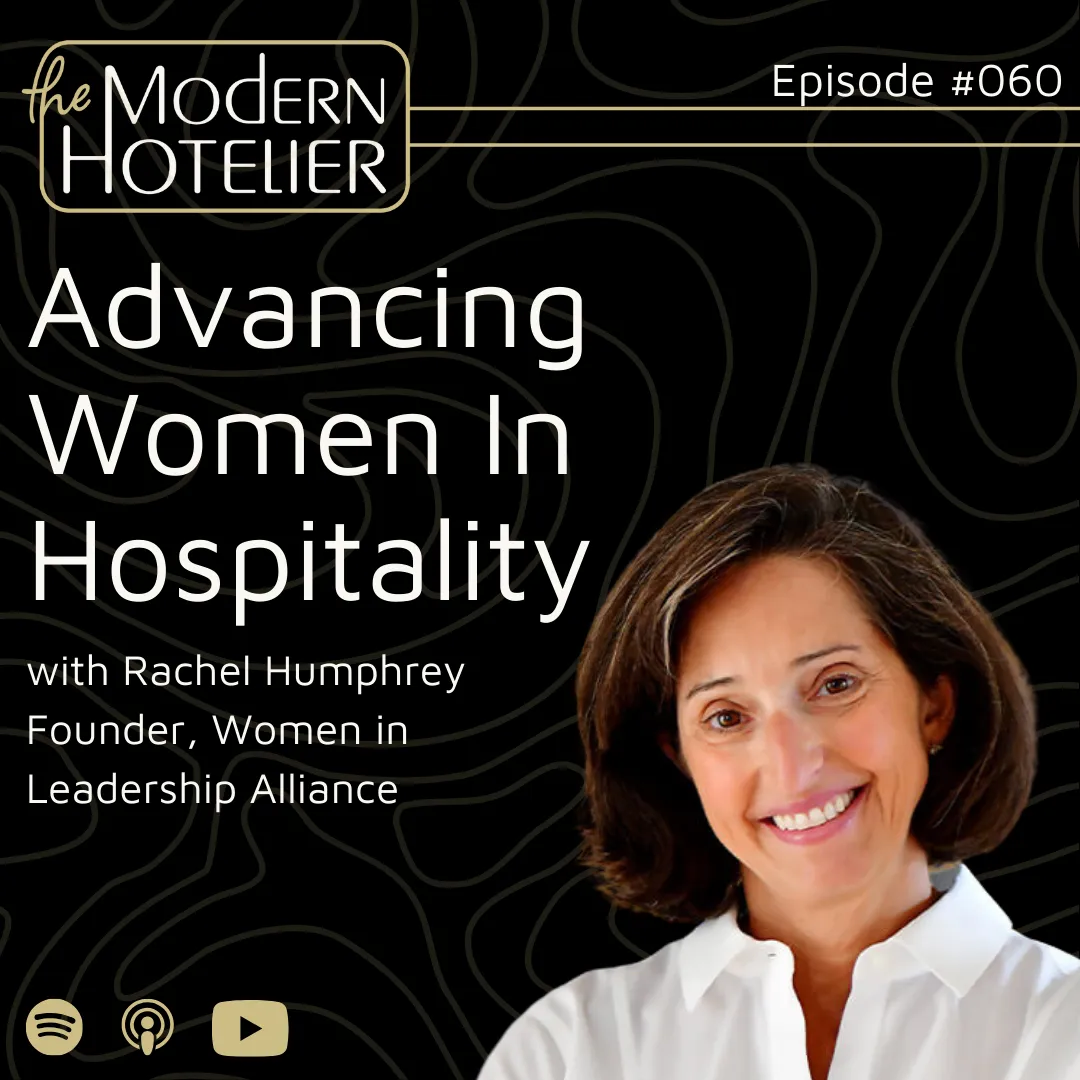Rachel Humphrey is a trailblazer in the hospitality industry, dedicated to advancing women in leadership roles. She is the Founder of the Women in Hospitality Leadership Alliance and serves as a Board Member, Principal, and Interview Host for DEI Advisors. Prior to her retirement in August 2021, Rachel served as the EVP & COO of AAHOA, the nation's largest hotel owners association. She was also the Interim President & CEO in 2019, after spending over 20 years as a trial lawyer before joining AAHOA in 2015. Widely recognized for her leadership and impact, Rachel has been named one of the most "Influential Women in Hospitality," "Top 50 Women in Travel," "100 Most Powerful People in USA Hospitality," and "100 Most Inspirational People in Hospitality."
Today we'll hear her insights on the necessity of allies in career advancement, the value of public speaking, and how mentors and leadership roles can transform the hospitality landscape, particularly for women. Rachel's vision for the growth of women in leadership positions within this industry is grounded in the data: women comprise half of our workforce and control a significant portion of consumer spending.
Prepare to be inspired as she shares her reflections on life, career development, and her invaluable advice for maintaining a positive attitude and work ethic. It's time to learn, grow, and get a glimpse of the future of hospitality leadership. Stay tuned as we explore the paths and perspectives shaping the industry with Rachel Humphrey.
In this episode, you'll discover:
- How to identify the gap in female leadership within the hospitality industry.
- The importance of self-advocacy and network building, especially for women.
- How to overcome challenges and career development.
- The Future of Female Leadership in Hospitality.
Join the conversation on today's episode on The Modern Hotelier LinkedIn page.
The Modern Hotelier is produced, edited, and published by Make More Media: https://makemore.media/
Episode Links
Rachel Humphrey
David Millili
Steve Carran
Steve on LinkedIn
The Modern Hotelier
Transcript
Automatic Transcription - please excuse any errors

